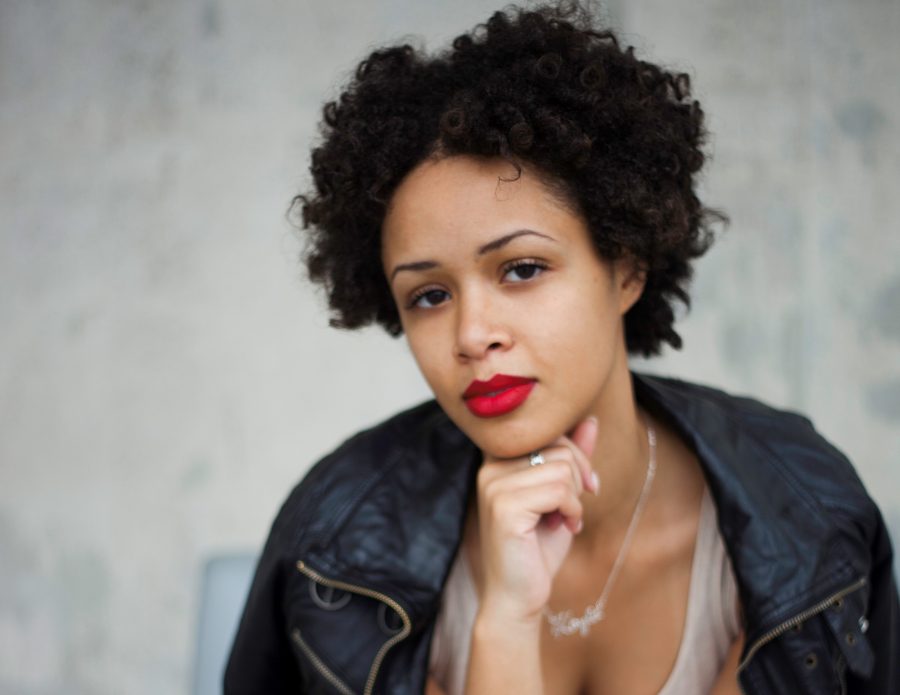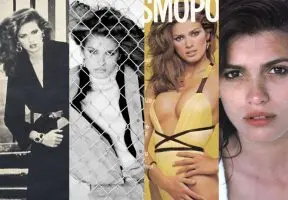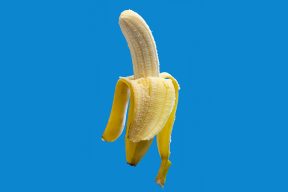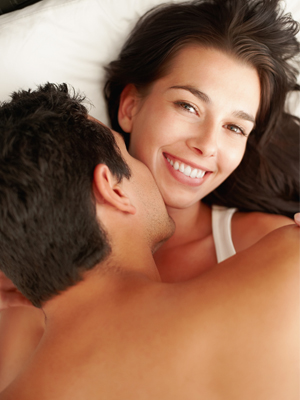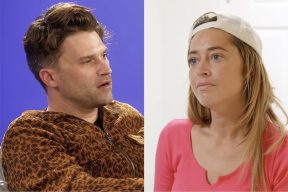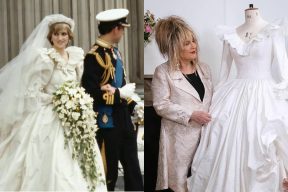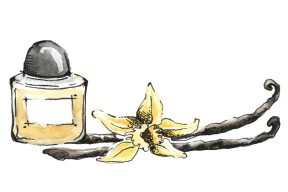Throughout her career, Toronto-based freelance lifestyle journalist Kayla Greaves has used her pen to shine a light on topics such as racial diversity and women’s issues. Through subject matter that some might cast off as less-than-meaty ” like makeup, skincare, and haircare ” she makes powerfully compelling arguments for the revision of beauty standards to make all women feel empowered. She worked as lifestyle editor at Huffington Post for nearly two years, and her bylines include Upscale magazine, Blavity, and Buzzfeed. She was also recently named in Canada’s Top 100 Black Women to Watch list, and she’s definitely a name you need to know. Here, we discuss Greaves’ work as a journalist, her journey to accepting her natural hair, and what feminism means to her.
To start, could you tell our readers a little bit about yourself and what you do?
So I am a journalist and most of my work focuses on lifestyle content like beauty, fashion, women’s issues, and things related to race. So I try to be pretty inclusive with my content. I am originally from Montreal. I moved from Montreal to Toronto when I was very young. Writing was something I always loved and wanted to do, but I never knew I could make a career out of it. The stars aligned though, and I did make a career out of it. I’m lucky enough to love what I do and it pays my bills.
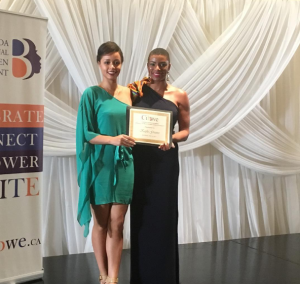
So you were named in the list of 100 Black Women to Watch in Canada, which is really cool. What did it mean to you?
I felt really honoured to be on that list. It also feels great because a lot of people I knew were also on that list. I think in the States, there’s a lot of celebration of black people and black womanhood and there’s a lot of solidarity in that community. In Canada, the black community is a little different. We don’t look at each other as black Canadians. We look at each other as what our backgrounds are ” so you’re Jamaican, you’re Nigerian. So it was really nice to have that celebration there. I was very humbled by that.
A common thread in your work is that you’re often telling stories about race and women’s issues. Would you say that writing is a medium of activism to you?
I would definitely say it’s a medium of activism. You know, a lot of times people look at lifestyle content and they’re like Oh, it’s just fluff news. But I think everything has the potential to make a difference. You could be writing beauty content, but you could still use it as a form of activism. We know in the beauty industry that a lot of the time people of colour are left out of the conversation. And people who have disabilities are sometimes left out of the visual concepts of these campaigns. The whole concept of beauty is to make people feel good about themselves, and to make people feel confident. That is what beauty is. It’s more than just makeup reviews or talking about a new product. You can use this to provoke change. There are ways to use this content and also get your point across, and to change opinions and change viewpoints while also sticking to doing what you love.
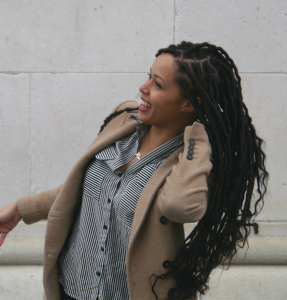
So I wanted to touch on some of the pieces you wrote about natural hair. Can you talk a bit about your own experience and how you come to embrace your natural hair?
So my mother probably started perming or relaxing my hair when I was very young. I think I was in elementary school ” maybe grade two or three. So I never really got the chance to learn anything about my natural hair. Within the black community, people will often say you have bad or good hair. So if you have good hair, it’s closer to the texture of a white person’s hair. If you have bad hair, then you have very kinky, curly hair. All I ever heard about my hair was that it was bad. There’s no such thing as bad hair or good hair. Hair is just hair. If you don’t take care of your hair it will look like you don’t take care of your hair. If you do take care of your hair it will look like you take care of your hair, regardless of the texture that it is. But that’s not what I was taught. That’s not to say anything about my family personally, these are just sayings that the black community uses.
Now, we’ve kind of moved forward from this, and we see a lot of black women come forward and say I don’t care what people want to say about ˜good’ and ˜bad’ hair. This is my hair and this is how it grows out of my scalp and I’m going to accept it. I came to that realization last year. It was terrifying for me because I was scared about whether I was still going to be attractive. Would I still like how I look? Would I still be happy with myself if I had natural hair? I had a relaxer for nearly 20 years. It was just what I was used to. It’s not even good for you to put that type of thing in your hair. You’re literally putting a chemical on your scalp, and it’s just not good for you. So I said to myself: Listen, I just need to embrace who I am. It doesn’t matter what my hair looks like. I’m just going to do it, and whoever can think whatever they want. They have to live with that, I have to live with myself, and I need to be happy with my hair. So I decided that I was going to go natural. And a way that helped me cope with the anxiety of going natural was to write about it and talk to other women who went natural and to get their insights and feelings on it. Now I’ve been natural for over a year now, and I’m happy and I’m proud of it.
So I wanted to talk a bit more about how a lot of your work is geared towards empowering women. What does feminism mean to you?
I think feminism means that you want women ” and all women ” to have the same rights as everyone else. And I think feminism means that you just want women to be treated like human beings. And that’s really all that we’re asking for. I think feminism gets misconstrued a lot of the time because people think of it as a dirty word. And a lot of people use academic language to explain feminism. And basically, people that are ignorant are people that are not well-educated, so if you use academic language with those people, a lot of the time that language is not accessible to them and they don’t understand. And therefore, they make their own assumptions about feminism. They think that it’s something negative. They think that it’s just a bunch of women who don’t shave their legs and want to complain. That’s really not what it is. It’s about human rights for women.
We need to talk about how women of colour are not treated well in corporate settings. It’s not just women, but when you’re a woman of colour, it just adds another layer to it. You know, women that are disabled, women that don’t speak English, women that are immigrants ” these are all things that we need to talk about and everybody needs to be on the same playing field. When it comes to feminism, I think that one thing that we’re talking about, or one thing that people kind of miss the ball on, is that we have one idea of what a woman should be like and a woman should follow this path. We need to be inclusive and understand that there are all types of women and they all deserve to have the rights that they feel that they should have.

I totally agree. So growing up ” or even to this day ” is there someone you would consider a role model or a source of inspiration?
There are a lot of women who I look to as inspirational role models. I think women like Naomi Campbell, who are very loud about things like diversity in fashion”she’s a role model in that sense. I think Rihanna is a role model in terms of what she did with FENTY BEAUTY. I think that Oprah is a role model in terms of what she’s done with business and media. She doesn’t present herself as a black journalist or a black media mogul. She is a media mogul that is black. And I think there’s a difference there. She doesn’t pigeonhole herself and all audiences can relate to Oprah. But she’s still very proud of who she is as a black woman. So I think there is something to be said about that and about how she’s branded herself.
Marianne Williamson is an author who I really look up to, because she is somebody who talks about the importance of love ” and not just love in the traditional romantic sense, but also about loving a fellow human being and how our actions should come from a place of love. I think just a general grassroots solution to helping the world become a better place. As cliche as it sounds. And being able to recognize that if we do things from a place of love instead of a place of thinking about our egos or us just wanting to be right, I think it can make a huge difference in the way that we treat people.
So getting back to your writing, is there a specific piece that you’ve written that you’re most proud of?
I wrote one piece [for Huffington Post] about natural hair and the anxiety that goes along with it. I think I’m most proud of that piece, because there’s a lot of intersection when it comes to beauty. So we can talk about hair, and we can say this is a beauty topic. But we also have to recognize that when it comes to beauty, there are intersections of mental health that comes along with it. A lot of beauty is psychological. We’re conditioned to believe what beauty is. … We’re taught that long hair is the epitome of what beautiful hair is, right? And then, when women want to cut their hair it becomes this big deal. It’s just hair and it will grow back. We were taught these things, and I think for black women especially, we’ve never been taught to love our hair. We’ve just been taught how to hide it or manipulate it and make it look like something that it’s not naturally.
So there is a lot of anxiety about going natural, especially when you’ve never seen what your natural texture looks like and you don’t know how to take care of it. You’re just thinking: Oh my God, I just need to look presentable when I go out in public. I need to look presentable when I go out to work. I want to look presentable to people that I find attractive. I want them to also find me attractive. So there are all of these weird underlying things that come with doing it. It’s really, really scary. You just don’t know how you’re going to look and how you’re going to be perceived and you just have to do it or don’t do it. So I think that was something I was really proud to write about because I think there’s a lot of conversation now about natural hair, but I don’t think there was a lot of conversation about how it affects us in a mental sense. If you’re someone that already struggles with anxiety, which a lot of black women do but don’t necessarily talk about, then that’s just an added thing to it.
That’s a great way of putting it. What are some challenges you have faced working as a female black journalist?
I think a lot of the time people don’t take you seriously. I think people don’t take what you have to say seriously. Again, not to talk about hair and hair and hair…but beauty is so different for black women than it is for other races of women. That’s not to say everybody is equally represented. You know, for us, our features are constantly mimicked and mocked in the mainstream. We often don’t get credit for what we do. You know, there are people that want to wear afro wigs and then want to take them off, but then they want to call our hair ugly and nappy. So I think a lot of the times when I would bring up some topics to a number of people, they’d be like Well, what’s the big deal? Why do we need to talk about this? Or they would kind of water down what I was saying. I’m pretty blunt in what I mean. I can word things in a way that is digestible, but I’m very to-the-point with what I’m trying to say. And a lot of the times, people think you’re being a little too fierce. Or they think you’re being the traditional angry black girl. Or they think you’re being too black, and they make you feel like you’re being too black. And that can make you really second-guess yourself, because you do think ” you’re like Oh my God, am I being the angry black girl stereotype? Am I being too angry? Am I being too ˜black’? But you have to remember that you have to stay true to who you are. That’s one of the challenges that comes along with being a black woman journalist. You have two things working against you: the fact that you’re black and the fact that you’re a woman.
Definitely. What is a great piece of career advice that you received or figured out along the way that you could pass on to our readers?
This actually came from Talya Lee Macedo. So basically, Talya told me: Listen, I’m never going to sugarcoat something for you. As a woman of colour, nothing is ever really going to come easy for you, but you need to try anyways and you need to try your best everyday anyways. And that hit me like a ton of bricks because it’s the truth. Nothing is ever going to come easy for you as a woman in a white, male-dominated industry. And if you’re a woman of colour, it’s going to be a little bit harder for you too but you still have to keep trying because when you try, it’s going to make a difference and it’s going to make space for other women like you to have this place one day.
So just to close off, what would you like to accomplish in the long-term, and are there stories out there that you hope to have the chance to write?
I don’t think it’s about me having the chance to write every single story. I think it’s about me being able to provide a space where other women, who aren’t like me and have different experiences than me, have the chance to share their narratives. And it can be genuine stories. It’s not somebody who is just writing for the sake of writing and has done research on a topic. It’s someone who has actually lived these experiences. So I think for me it’s about having the ability to control the editorial vision of a bigger publication, being able to shift the conversation around womanhood and beauty, not making it fluff, and making it inclusive and making it into a space where everyone feels welcome and everyone feels celebrated. And if we’re not including somebody, whoever feels that they are not included or that there is a topic we should cover, I would encourage them to share their story as well.
Ed’s Note: This interview has been edited and condensed.

